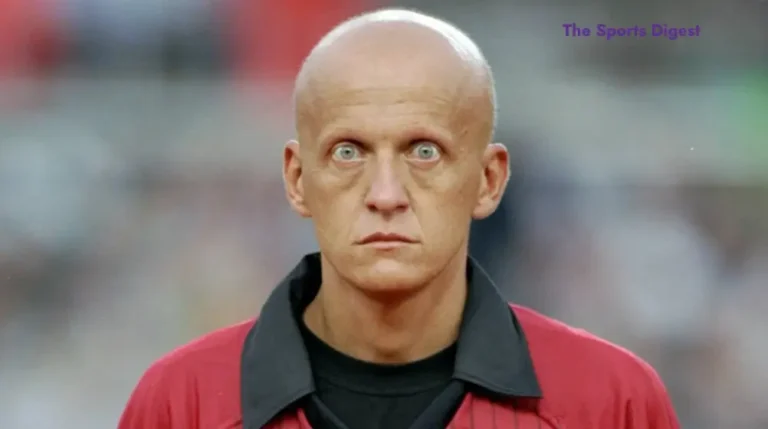Ole Gunnar Solskjaer: United’s Moment Maestro
“When the storm rages strongest, the calmest hands steer the ship.” This old Norwegian saying perfectly encapsulates Ole Gunnar Solskjaer‘s influence at Manchester United. While his name might not always be the first mentioned alongside titans like Sir Bobby Charlton, Roy Keane, or Ryan Giggs, Solskjaer represented one of the primary arteries that kept the heart of Manchester United pumping during their most dominant era.
Table of Contents
The Super-Sub Who Changed the Game
With 126 goals for Manchester United, Ole Gunnar Solskjaer‘s scoring record stands impressive on its own merit. What makes this achievement remarkable is that he accumulated this tally despite not being a regular starter under Sir Alex Ferguson. The legendary Scottish manager recognized something special in the Norwegian—a unique ability to read games from the sidelines and deliver precisely what was needed when introduced.
Ferguson deployed Ole Gunnar Solskjaer as his tactical “ace in the hole,” preserving him for moments when defenses had tired or when a different approach was needed. Where many players would have grown frustrated with this role, Solskjaer embraced it with characteristic humility and professionalism. He understood his value within the squad and how his particular talents served the team’s greater ambitions.
His effectiveness from the bench is perhaps best captured in the staggering statistic of 29 goals scored as a substitute—a Premier League record he long held. When Ole Gunnar Solskjaer rose from the bench, anticipation rippled through Old Trafford. Fans knew something special might happen, and more often than not, it did.
From Norwegian Obscurity to Manchester’s Spotlight
Before becoming Manchester United’s secret weapon, Ole Gunnar Solskjaer cut his teeth at Clausenengen in Norway’s lower leagues before catching attention at Molde FK. His impressive record of 31 goals in just 42 appearances for Molde eventually caught Ferguson’s attention, though few could have predicted the impact he would have.
When Manchester United secured his signature for a modest £1.5 million in 1996, the transfer barely created ripples in the football world. While United fans eagerly anticipated news of Alan Shearer’s potential arrival, they instead got a little-known Norwegian striker who was, in his own words, “a nobody in world football.” The signing seemed almost an afterthought—certainly not the marquee addition supporters expected for a club of United’s stature.
Yet it took just six minutes of his debut against Blackburn Rovers to offer a glimpse of what was to come. Introduced as a substitute, Solskjaer marked his arrival with a goal, beginning a pattern that would define his career at Old Trafford.
First Season Success and Setting Standards
Any lingering doubts about Solskjaer’s caliber evaporated during his remarkable first season. Despite his substitute reputation, he finished as the club’s top scorer with 18 league goals, helping Manchester United secure the Premier League title. This immediate impact established him as far more than just a backup option.
Throughout his United career, injuries proved a persistent challenge for Ole Gunnar Solskjaer. Yet even when these setbacks limited his playing time, his contributions remained significant whenever he stepped onto the pitch.
Barcelona, 1999: The Moment That Defined a Career
If one moment encapsulates Solskjaer’s Manchester United career, it’s undoubtedly the 1999 Champions League final against Bayern Munich at Camp Nou. With United trailing 1-0 and the match deep into stoppage time, Ferguson turned to his bench and called upon his Norwegian finisher.
What followed has become footballing folklore. After Teddy Sheringham’s equalizer in the 91st minute gave United hope, Solskjaer delivered the knockout blow. As David Beckham’s corner was flicked on by Sheringham, Ole Gunnar Solskjaer instinctively extended his right foot to prod the ball into the Bayern net, completing an extraordinary comeback and securing United’s historic treble.
The goal perfectly exemplified everything that made Ole Gunnar Solskjaer special—his positioning, his anticipation, his composure in the most pressurized circumstances, and his uncanny ability to affect games from the bench.
The Liverpool Turning Point
While Barcelona might represent his most iconic moment, another crucial intervention came months earlier in an FA Cup fourth-round tie against Liverpool. With the match heading toward a replay, Ole Gunnar Solskjaer struck in the 80th minute to secure victory, providing momentum for what would become United’s treble-winning campaign.
Interestingly, Solskjaer later revealed he had experienced a premonition before that match, telling teammates he felt he would “do something that night.” This intuitive understanding of his own impact moments illustrates the psychological readiness that complemented his technical abilities.
His goals often came through shrewd positioning and football intelligence rather than spectacular strikes. Rebounds, quick reactions, and being in precisely the right place characterized his scoring prowess—qualities that made him the perfect opportunist for late-game scenarios.
More Than Just Goals: A Legacy of Reliability
Over his 11 years at Manchester United, Solskjaer built a reputation that transcended statistics. His reliability and consistency made him beloved by teammates and managers alike. While many talented players have passed through Old Trafford, few have matched Solskjaer’s understanding of collective success over individual glory.
His acceptance of the substitute role—and his mastery of it—created a template for specialists that few have successfully replicated. When Solskjaer removed his tracksuit top and prepared to enter games, a ripple of excitement would spread through the crowd. His presence carried the promise of possibility, the potential for magic in the final minutes.
This anticipation transformed him from merely a capable player into a cult icon at United. Fans didn’t just appreciate his contributions; they developed an emotional connection to him that persists long after his playing days ended. His status as possibly the “greatest substitute” in football history doesn’t diminish his legacy—it defines its uniqueness.
Even after hanging up his boots, Solskjaer’s football journey continued as he moved into management, including a successful stint as head coach at his former club Molde. His understanding of the game, particularly his recognition of how different players can impact matches in different ways, informed his approach to coaching.
Ole Gunnar Solskjaer may not have always been Manchester United’s headliner, but his ability to deliver when it mattered most ensured his place in the club’s illustrious history. In football’s most crucial moments, when pressure mounted and options seemed limited, United found their answer in the calm Norwegian who always waited patiently for his moment to shine.
Have you ever read an article like this?
There are no reviews yet. Be the first one to write one.






